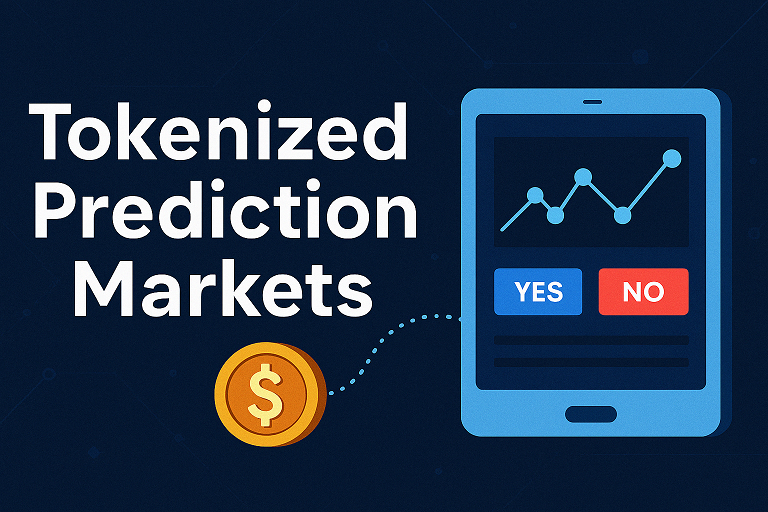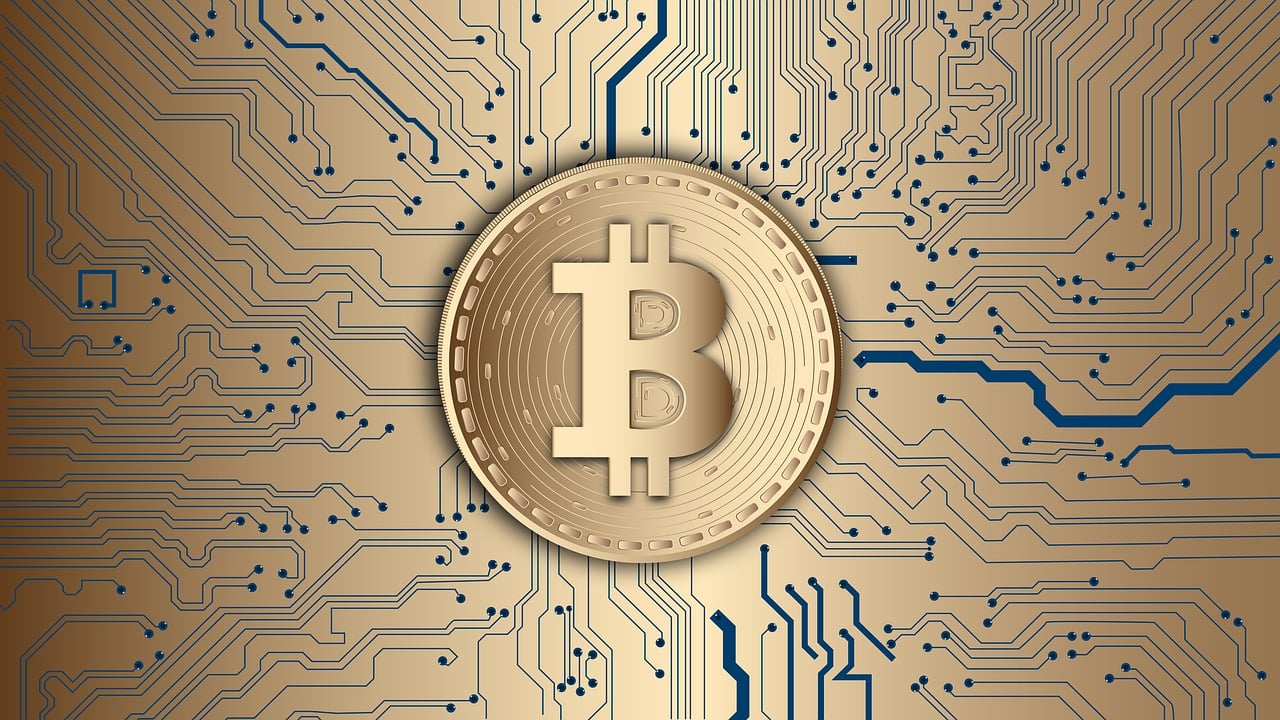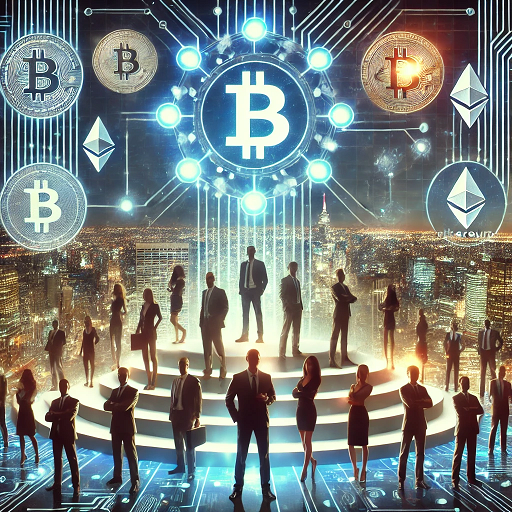Tokenized prediction markets are revolutionizing the way we anticipate future events by combining the principles of game theory, decentralization, and blockchain technology.
Understanding Tokenized Prediction Markets
Tokenized prediction markets refer to decentralized platforms where users can trade on the outcomes of future events using blockchain-based tokens. These markets operate on the idea that the crowd, when incentivized properly, can often forecast future occurrences more accurately than individual experts or centralized institutions. While prediction markets are not new, the introduction of tokens as a medium of exchange and settlement has introduced new efficiencies, enhanced trust, and widened participation.
In traditional prediction markets, intermediaries such as betting exchanges or prediction platforms manage the flow of funds and resolve outcomes. Centralized systems frequently struggle with legal barriers, limited openness, and restricted user access. Blockchain-based solutions eliminate intermediaries by allowing smart contracts to execute transactions automatically and transparently. Users place „bets“ or rather „predictions“ using tokens, and the outcomes are resolved algorithmically or through decentralized oracle systems.
The Mechanics Behind Tokenized Prediction Markets
The architecture of tokenized prediction markets typically involves smart contracts, token incentives, decentralized oracles, and community governance. Users purchase shares or outcome tokens that represent a stake in a particular result—say, „Candidate A will win the 2028 US Presidential election.“ The token price fluctuates based on supply and demand and, effectively, the perceived probability of that outcome.
Once the event concludes, the correct outcome token becomes redeemable for value (in the native token or another cryptocurrency), while incorrect outcome tokens lose their value. The system thus financially rewards accurate forecasting and penalizes incorrect guesses.
Trading, outcome resolution, and reward distribution are handled seamlessly through self-executing smart contracts. Decentralized oracles fetch real-world data to determine outcomes, reducing the risk of manipulation or censorship. In some systems, users can even dispute outcome resolutions through community voting or challenge mechanisms.
Why Tokenized Prediction Markets Are Gaining Popularity
There are several reasons why these systems are gaining momentum:
- Decentralization and Trustlessness: No central authority controls the market, making it more trustworthy and censorship-resistant.
- Global Accessibility: Anyone with a crypto wallet and internet connection can participate, bypassing geographic restrictions.
- Lower Costs: By removing middlemen, self-executing contracts streamline transactions and minimize associated costs.
- Incentivized Wisdom of the Crowd: Participants have real financial incentives to provide accurate predictions, which leads to more reliable forecasting.
- Composability: These markets can be integrated with other DeFi products, such as lending platforms or derivatives.
Use Cases for Tokenized Prediction Markets
These decentralized systems offer diverse applications across a wide range of sectors:
Political Forecasting
Forecasting political developments is among the most frequent use cases. From election outcomes to legislative developments, these markets can capture and aggregate public sentiment in real time.
Financial Markets
Participants can predict interest rate decisions, stock market movements, or cryptocurrency trends. Institutions might use these markets to hedge against economic events or evaluate macroeconomic scenarios.
Sports and Entertainment
Betting on sports events or entertainment awards through a decentralized platform provides a trustless alternative to traditional betting platforms, often with better odds and fewer restrictions.
Scientific Research and Innovation
Tokenized prediction markets can be used to forecast the outcomes of scientific experiments, technological developments, or even the likelihood of discovering a cure for diseases. This creates incentives for knowledgeable individuals to share insights earlier.
Security and Risk Assessment
Companies can use these systems internally to predict potential failures, breaches, or project delays by collecting anonymous inputs from employees and stakeholders.
Leading Platforms in the Tokenized Prediction Markets Ecosystem
Several projects are spearheading the development of decentralized forecasting tools:
Augur
Augur, a trailblazer in decentralized forecasting, is built on the Ethereum blockchain. Users can create their own markets, trade shares, and earn fees. The platform relies on its native token (REP) to facilitate outcome reporting and handle disputes.
Gnosis
Initially launched as a prediction market, Gnosis evolved into a comprehensive suite of blockchain-based governance and trading tools. The Gnosis Conditional Tokens framework still plays a central role in creating outcome-based tokens for decentralized prediction mechanisms.
Polymarket
A user-friendly platform where traders can buy and sell shares in real-world events. Polymarket has gained traction by offering clean UX and hosting markets on political, economic, and social topics. The platform runs on the Polygon blockchain, benefiting from its cost-efficient transaction model.
Omen
Built on the Gnosis protocol, Omen allows users to create markets, use outcome tokens, and rely on a community-driven oracle system for resolution. Omen integrates liquidity pools powered by Automated Market Makers (AMMs) to enhance trading efficiency.
Challenges Facing Tokenized Prediction Markets
Despite their advantages, these platforms face several hurdles:
Regulatory Uncertainty
Many jurisdictions view prediction markets as a form of gambling. Legal ambiguity can hinder adoption and lead to project shutdowns or user bans. Widespread adoption hinges on the development of more consistent and transparent global regulations.
Oracle Dependency
These systems rely heavily on accurate data from oracles. If an oracle is compromised or manipulated, the outcome of a market can be skewed. Decentralized oracle networks like Chainlink are working to mitigate this issue, but risks remain.
Market Liquidity
Without sufficient participants, markets can become illiquid, making it hard to enter or exit positions. This is especially problematic for niche or highly specialized predictions.
Risk of Manipulation
Whales (large token holders) may influence market outcomes by placing large bets or engaging in outcome manipulation, particularly in smaller markets. Such behavior erodes trust in the platform and discourages genuine user engagement.
Complexity
Navigating the entry point can be challenging for users who are new to blockchain-based platforms. Understanding how smart contracts work, how to acquire and use tokens, and how to interpret market odds can be daunting for non-technical users.
The Ethical Dimension of Tokenized Prediction Markets
As with any powerful technology, ethical questions arise. Is it appropriate to bet on events like natural disasters, pandemics, or violent conflicts? Some argue that allowing markets for such outcomes commodifies human suffering. Others believe that allowing these markets can incentivize early warnings or better preparedness.
Furthermore, anonymous participation raises concerns about insider information. If someone uses non-public information to make a bet on a publicly tradable outcome, does this constitute insider trading? Such dilemmas push the boundaries of conventional ethical and legal thinking.
Future Trends in Tokenized Prediction Markets
The field is evolving rapidly. Here are some trends to watch:
Integration with AI
Machine learning models can be used to analyze prediction market data to forecast trends or assist traders in making more informed bets. Conversely, AI-generated predictions could be directly integrated into market creation.
Cross-Chain Markets
With the rise of multi-chain ecosystems, future platforms might allow users to place bets across multiple blockchains, improving interoperability and liquidity.
Gamification and Social Features
More user-friendly interfaces, social trading tools, and gamified experiences could attract broader participation, particularly from retail users.
Institutional Involvement
Financial institutions, hedge funds, and think tanks might use these markets for decision-making, scenario planning, or as supplementary data sources for research and strategy.
Decentralized Governance
Users might get to vote on which markets to launch, how to resolve disputes, or how fees are distributed. DAOs (Decentralized Autonomous Organizations) could be used to steer the direction of major platforms.
Conclusion: The Transformative Potential of Tokenized Prediction Markets
Tokenized prediction markets represent a compelling use case at the intersection of finance, technology, and collective intelligence. By enabling decentralized, trustless, and transparent forecasting, these platforms offer a powerful alternative to traditional models of prediction and decision-making.
As the technology matures and regulatory clarity improves, we may see prediction markets integrated into everyday decision tools used by individuals, corporations, and governments alike. Whether forecasting elections, assessing geopolitical risks, or evaluating R&D pipelines, the crowd-powered wisdom harnessed through tokenized systems could reshape how we understand and navigate the future.

















